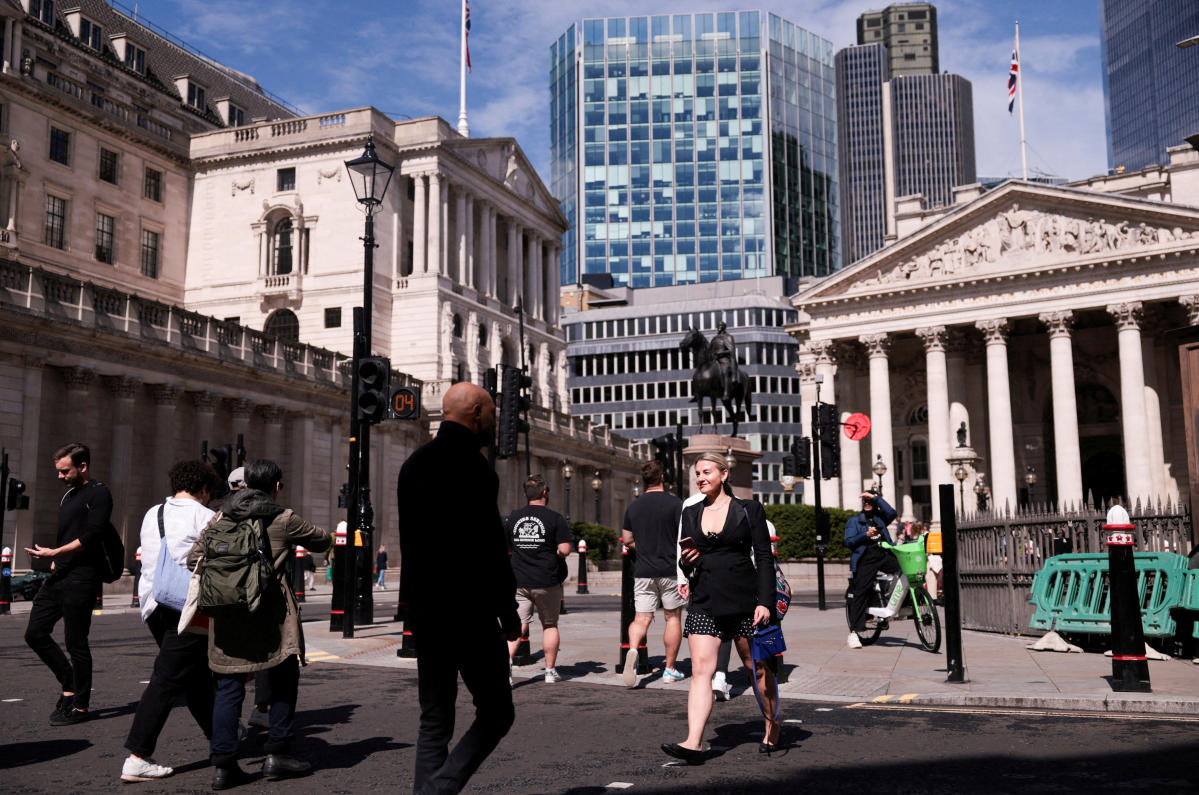The current pace of government bond sales by the Bank of England could cost the Treasury up to £96bn over the next four years, a new study has found.
As the market looks to Threadneedle Street’s policy announcement on Thursday, the pace of “quantitative tightening” (QT) will be in focus for government officials and taxpayers alike.
QT is the converse of quantitative easing (QE). QE is the purchasing of government debt by the Bank to stimulate the economy. To prop up the economy over the past 13 years, the Bank of England implemented QE repeatedly, buying debt to help to absorb the shock of the 2008 financial crash and during the Covid-19 pandemic. This “created” £875bn of new money.
As part of QT, the Bank is directly selling government debt back into the market.
There has been speculation that the Bank may increase the speed of QT from the expected £100bn to £120bn — a rate that would cost the taxpayer over £28bn per year, £4.5bn a year more than current speed.
Read more: US Federal Reserve expected to cut and Bank of England set to hold interest rates
The latest analysis by the New Economics Foundation (NEF) suggests that if central bank selling continues at the same pace it has reached, it will cost the taxpayer just under £24bn a year until 2028-29.
Why does QT cost so much?
Costs ramp up because, as the bank sells government debt, it makes losses. These losses are covered by the Treasury due to an indemnity policy agreed in 2009. Since 2022, these losses have cost the taxpayer more than £45bn, the NEF said.
The Treasury Committee previously dubbed the Bank’s moves a “leap in the dark” in a report that expressed concern about the implications of QT on public spending.
Interest rates play an important part in this. The losses are due to different interest rates on reserves the Bank pays commercial banks versus what it receives on the government bonds it owns. Since the central bank rate has been at a 16-year high of 5.25%, with a fall to 5% in August, the difference materially matters.
Further losses are made during QT when the Bank sells a bond (or lets it mature) for a lower price than it initially paid.
What can be done about it?
The NEF research concludes that slowing the pace of quantitative tightening to what it was in 2022-2023 could save the taxpayer £4.4bn a year. Halving the speed of quantitative tightening could save £10.6bn a year.
Stopping the active sale of bonds completely and just letting bonds roll off as they reach maturity, akin to the speed of QT in use by the US Federal Reserve and the EU’s European Central Bank, could save £13.5bn a year, it added.
Read more: Trending tickers: Apple, Microsoft, Intel and Kingfisher
“The Bank of England should reflect on the value for money from such choices and the chancellor should reconcile the fact that her fiscal rules are imposing arbitrary constraints on her spending decisions which monetary policy decisions may put extra pressure on,” said NEF economist Dominic Caddick.
“Reducing the fiscal costs of our monetary policy system and reforming the fiscal rules must both be on the table.”
On the government side, chancellor Rachel Reeves could switch up her approach too, in order to lessen the burden on government debt targets. One route would involve the Treasury switching its fiscal target to the UK’s headline measure of public sector net debt, accounting for central bank losses earlier than under the measure the Treasury currently targets.
The current target requires debt to be falling between the fourth and fifth years of its forecast.
The switch would add about £16bn of extra headroom against Reeves’s fiscal rule, the FT reported.
Download the Yahoo Finance app, available for Apple and Android.
EMEA Tribune is not involved in this news article, it is taken from our partners and or from the News Agencies. Copyright and Credit go to the News Agencies, email news@emeatribune.com Follow our WhatsApp verified Channel




